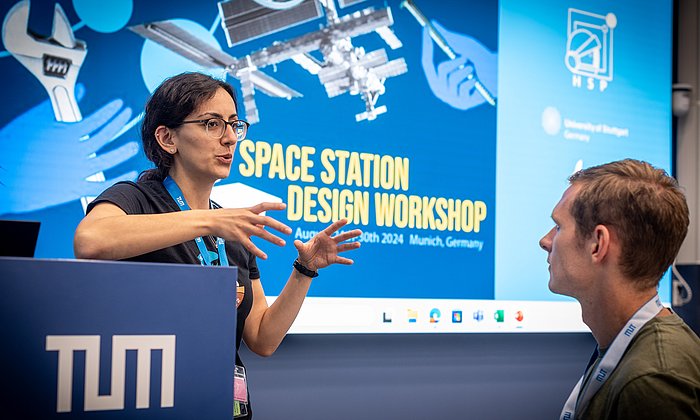Resources on the Moon: an interview with Prof. Philipp Reiss
"Oxygen and water production on the Moon in the next 10 years"

Mr. Reiss, NASA is sending a rocket with measuring instruments to the Moon this week, and at the same time five missions from different space agencies alone are planned for water exploration - where does the keen interest in the Moon come from?
Compared to the Apollo era, when the motivation was clearly political, the motivation now is actually scientific exploration. The topic of water on the Moon is particularly central. There are still numerous questions to be answered - such as: Where does the water come from and in what quantities is it present. Usable resources could be sold in the future and represent economic potential. And we can do a lot of science on the Moon. We can study the impact processes, we can learn a lot about the age and geology of the lunar surface, about the solar system and about the formation of celestial bodies. These topics were not the focus of the Apollo missions and were only partially pursued afterwards. Moreover, knowledge about water on the Moon is only a good 25 years old. Before that, it was assumed that there was no water on the Moon.
The Moon is supposed to provide raw materials, serve as a hub for journeys to distant planets and be colonized. Which of these are realistic, and when can we expect them to be realized?
The first issue to be tackled is fuel. On the one hand, it holds the greatest economic potential and, on the other, we are making enormous efforts to get fuel from Earth into space. Propellant production on the Moon would open up completely new possibilities for distant flights. In addition, it would not only save costs when launching on Earth, but also emissions. I expect the first demonstration flights to take place in the next 10 years. This means that the first devices on the Moon will extract oxygen from the rock, known as regolith, and treat water. The next step will then be to utilize the raw materials. Colonization of the Moon, on the other hand, will take much longer.
Will the extraction and processing of resources be possible without humans?
Most of the processes will actually be robotic. Humans will remotely control the processes and machines on the Moon from the planned Gateway [Lunar Orbital Platform-Gateway] space station, for example. However, humans will play an important role in prospecting, i.e. finding resources. They are better able to perceive objects and resources on the lunar surface than robots with their sensors. That is why humans and robots are needed on the Moon. Robots will then take over the extraction and processing.
What happens after resource extraction on the Moon? Will we go on to other planets, or will there be further fields of research on our Earth satellite?
There is still a lot to discover and explore on the Moon. For example, setting up telescopes on the far side of the Moon would make new discoveries possible because there is no interference from the Earth. At the same time, we will also be heading towards Mars. I think the classic approach of using the Moon as a stepping stone to Mars and as a testing ground for Mars missions is too short-sighted. Both the technological requirements and the environmental conditions are very different, although there are of course many synergies. In addition, we can fly to the Moon much faster and more flexibly than to Mars. That's why I think it makes more sense to develop missions to both celestial bodies in parallel.
For long-distance interplanetary missions, however, the space between Earth and the Moon could become more important. Larger spacecraft could come from Earth or the Moon in individual parts and then be assembled and refueled in the lunar region.
KinderUni lecture "Treasures on the Moon"
Ph. Reiss: Exploring the lunar water cycle. Proceedings of the National Academy of Sciences (PNAS). https://doi.org/10.1073/pnas.2321065121
-
As part of the KinderUni, Prof. Reiss also enlightened budding planetary and space researchers between the ages of 7 and 12 about the moon and its resources with his lecture "Treasures on the Moon". https://www.kinderuni-muenchen.de/vorlesungsverzeichnis/
-
TUM School Engineering and Design: https://www.ed.tum.de/en/ed/home-1/
Technical University of Munich
Corporate Communications Center
- Moritz Müller
- presse@tum.de
- Teamwebsite
Contacts to this article:
Prof. Dr. Philipp Reiss
Chair of Planetary and Lunar Exploration
Technical University of Munich
Phone +49 (89) 289 - 55680
p.reiss@tum.de











